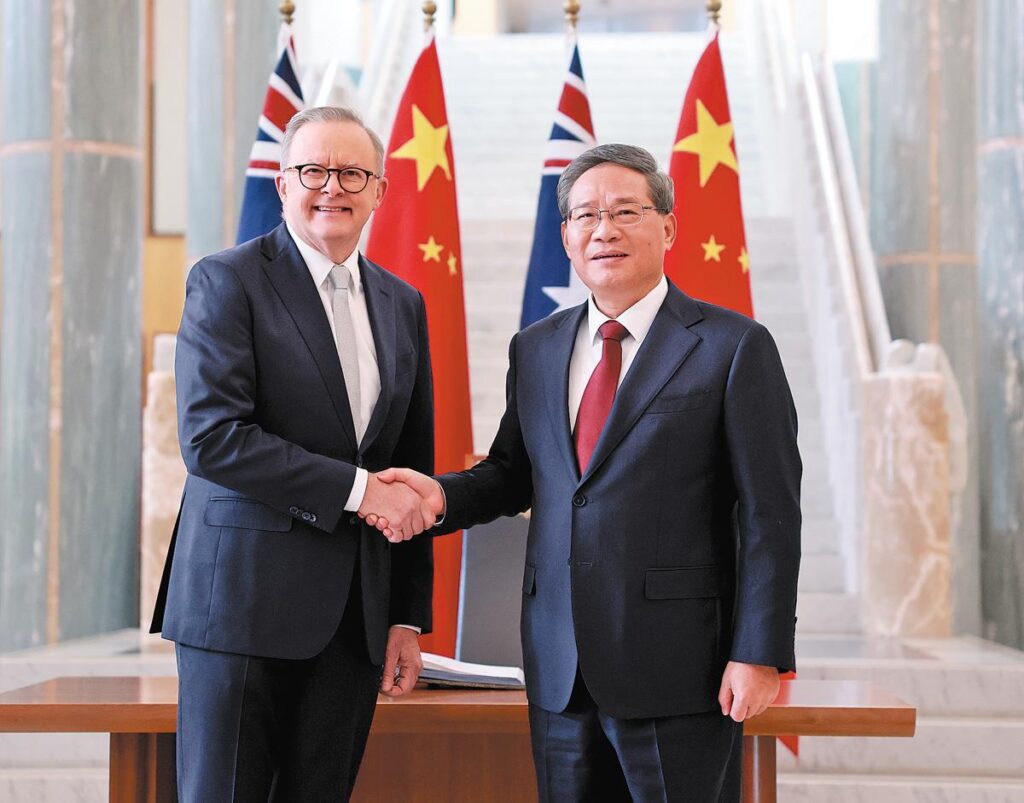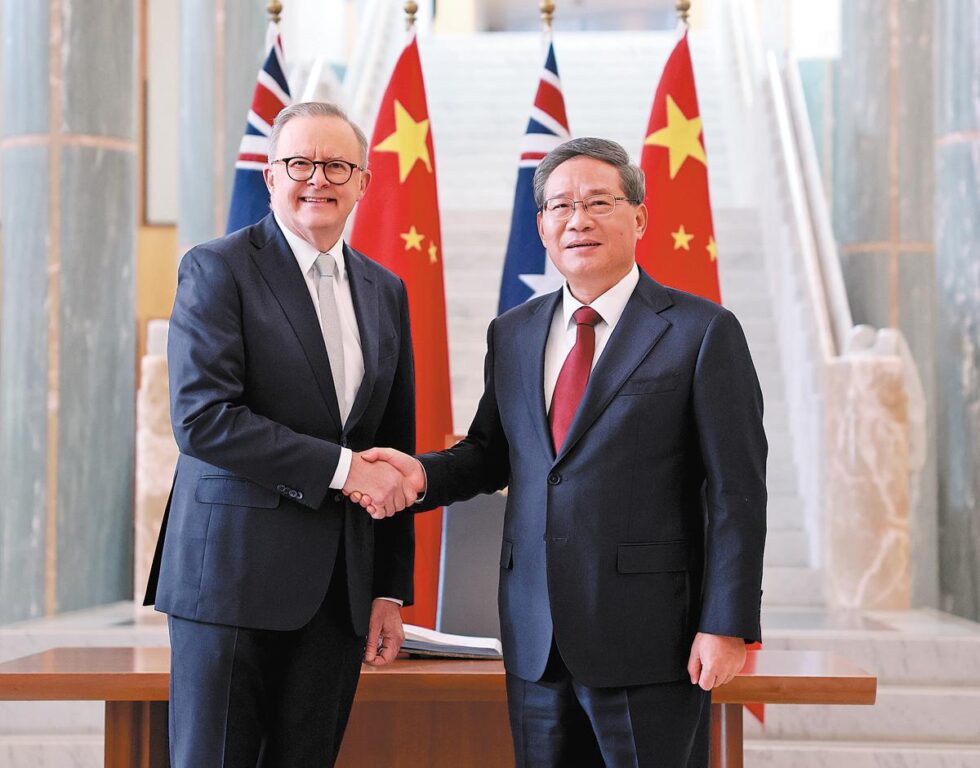
China and Australia vowed on Monday to work toward a mature, stable and constructive comprehensive strategic partnership while consolidating the current positive development momentum, and to jointly uphold regional and global peace, stability and prosperity.
During the ninth China-Australia Annual Leaders’ Meeting on Monday in Canberra, Premier Li Qiang and Australian Prime Minister Anthony Albanese confirmed that the bilateral relationship is on the right track of steady improvement, and they agreed that the two countries should maintain regular engagement in support of the ongoing stabilization and development of their ties.
Li is making an official visit to Australia, the first one by a Chinese premier since 2017. The first stop of his four-day visit to Australia was Adelaide in the state of South Australia, where he visited Adelaide Zoo on Sunday to inspect the countries’ cooperative research on conservation of the giant panda. He is scheduled to attend a China-Australia CEO Roundtable Meeting in Perth on Tuesday together with Albanese.
The premier pointed out during the meeting that China-Australia relations are essentially characterized by mutual benefit and win-win results. The development of China and Australia presents opportunities, rather than challenges, to each other, he said.
Li underlined the need for both countries to continuously expand trade, and actively explore cooperation in areas such as new energy vehicles and renewable energy.
It is hoped that Australia will provide a fair, just and nondiscriminatory business environment for Chinese enterprises and facilitate people-to-people exchanges, he said.
Li expressed China’s willingness to strengthen coordination and cooperation with Australia on regional and international affairs, and jointly oppose bloc confrontation and a new “Cold War” to safeguard regional peace and stability.
He also underscored the need for both countries to advocate openness, inclusiveness and common development, in order to promote regional economic integration and build an open world economy.
China has been Australia’s largest trading partner for 15 consecutive years. Bilateral relations were severely damaged due to the negative policies adopted by the previous Australian government toward China. The two countries have broken the ice since Albanese assumed office in 2022.
Albanese said during the meeting that Australia is happy to see an upturn in bilateral ties, and it is willing to maintain dialogue and cooperation with China and will not allow differences to define their relationship.
Australia adheres to the one-China policy and does not support “Taiwan independence”, he said, adding that it is in favor of China’s development and prosperity.
Following the meeting, the leaders witnessed the signing of a range of bilateral documents and jointly met the media.
The two sides issued a joint statement on the outcomes of the China-Australia Annual Leaders’ Meeting. The statement said that both leaders agreed to continue or expand engagement in political dialogue, including through the defense strategic dialogue and defense coordination dialogue, and to convene an initial session of a bilateral maritime affairs dialogue.
Both sides welcomed the implementation of arrangements to facilitate exchanges, including reciprocal access to multi-entry visas of up to three to five years’ duration for business, tourism and visiting family members, according to the statement.
In a separate arrangement, China will include Australia in the list of unilateral visa-free countries.
On Monday, Li also met with other political leaders of Australia, including Governor-General David Hurley.




